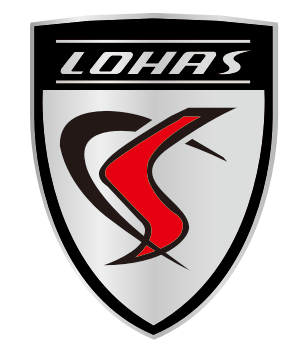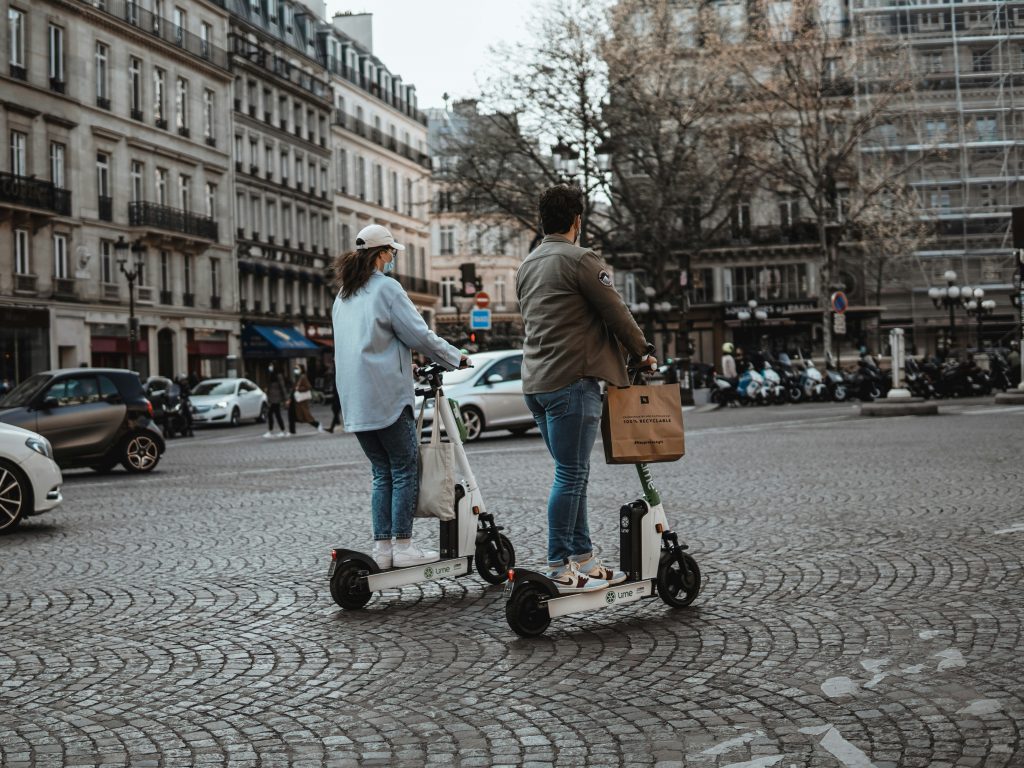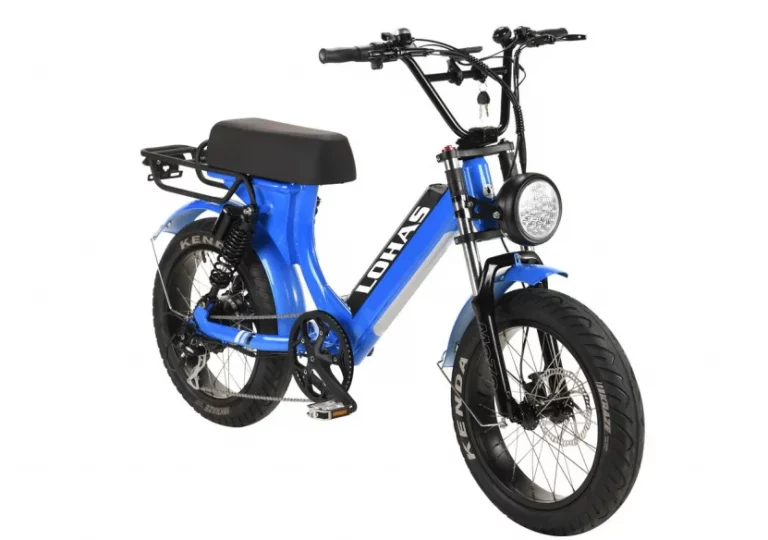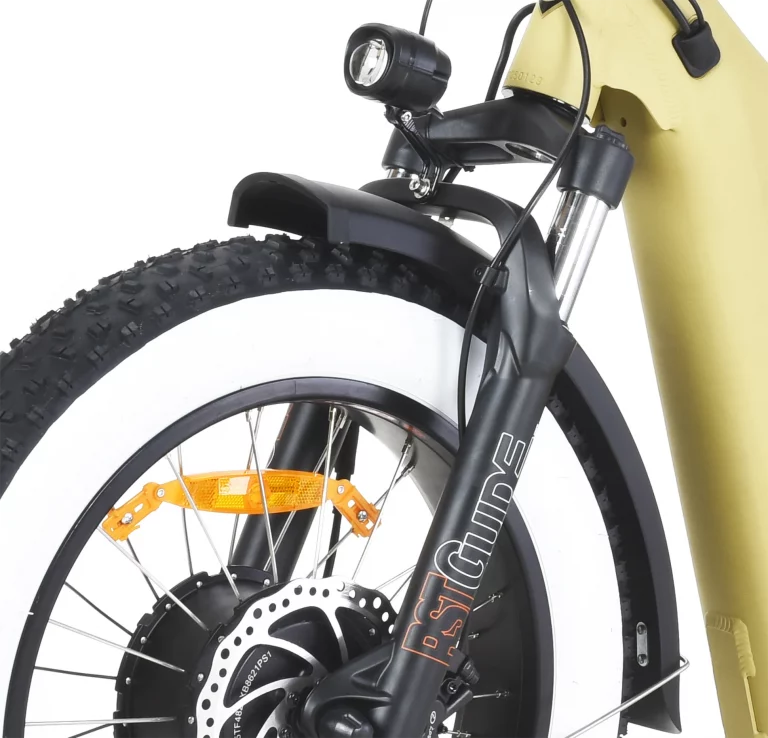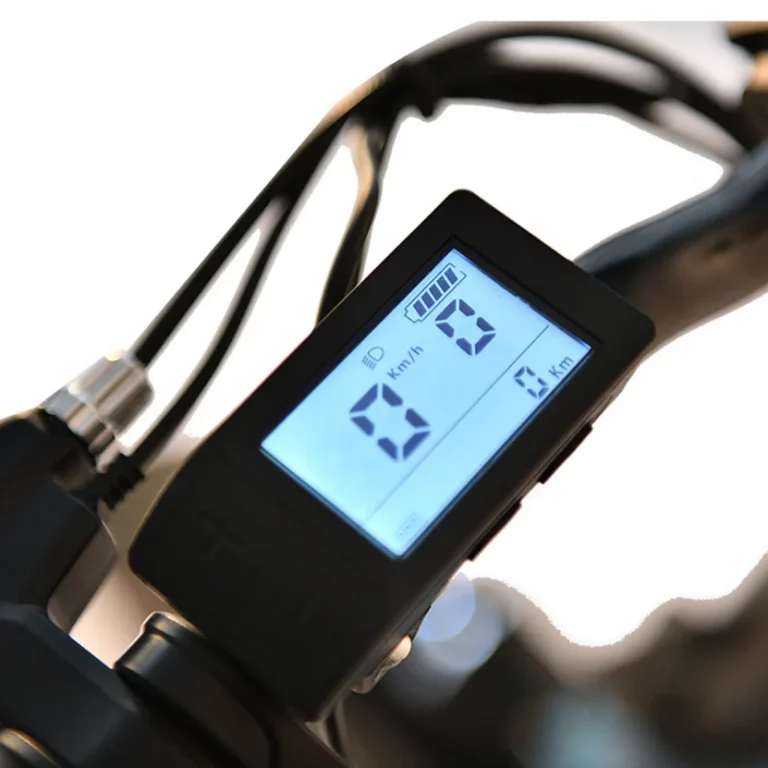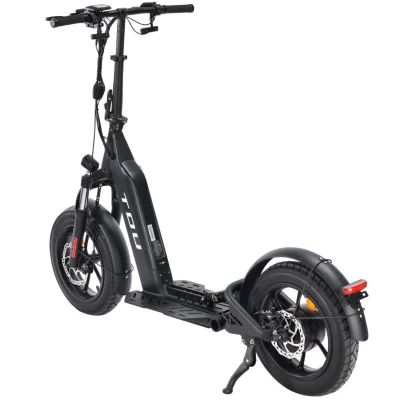Electric scooters have surged in popularity as a convenient, eco-friendly mode of transportation. Whether for commuting, leisure, or errands, understanding the speed capabilities of these modern marvels is pivotal. But just how fast can electric scooters go? Let’s delve into the details.
Overview of Electric Scooters
Definition and Types of Electric Scooters
Electric scooters are powered by electric motors and batteries, providing an environmentally friendly alternative to gas-powered vehicles. There are various types of electric scooters, each designed to meet different needs and preferences:
- Stand-Up Scooters: These are the most common type of electric scooter, where the rider stands on a platform while holding onto handlebars for balance and control. Popular with urban commuters, stand-up scooters offer agility and ease of use.
- Sit-Down Scooters: As the name suggests, these scooters come with a seat, making them a comfortable choice for longer rides. They are often preferred by individuals who seek a more relaxed and stable riding experience.
- Folding Scooters: With portability in mind, folding scooters can be compacted down to a smaller size. Ideal for those who need to carry their scooter on public transport or store it in limited spaces, these scooters strike a fine balance between convenience and functionality.
History and Evolution of Speed in Electric Scooters
Electric scooters have come a long way since their inception. Initially designed for short, leisurely rides, the early models boasted modest speeds. However, as technology advanced, so did the capabilities of these scooters. Modern electric scooters can reach impressive speeds, enhancing their viability as a transportation option. Innovations in battery technology, motor power, and design have all contributed to the evolution of electric scooter speed.
Factors Affecting the Speed of Electric Scooters
Understanding the factors that influence the speed of electric scooters is crucial for selecting the right model to meet your needs. Several elements play a significant role:
Motor Power
- Brushless DC Motors: These are the gold standard in electric scooter motors due to their efficiency and durability. Brushless motors generate higher power with less heat, enabling scooters to achieve greater speeds.
- Brushed DC Motors: Although less efficient and more prone to wear, brushed DC motors are still used in some entry-level and mid-range scooters. They provide adequate power but are limited in terms of maximum speed compared to brushless motors.
Battery Capacity and Voltage
- Lithium-Ion Batteries: Known for their high energy density and longevity, lithium-ion batteries are a popular choice for electric scooters. A higher voltage and capacity can significantly boost the scooter’s speed and range.
- Lead-Acid Batteries: These batteries are heavier and have a lower energy density, making them less efficient. Consequently, scooters with lead-acid batteries tend to have lower speeds and shorter ranges.
Weight Capacity
- Rider Weight: The weight of the rider can significantly affect the scooter’s speed. Heavier riders may experience reduced speeds and shorter battery life due to the increased load on the motor.
- Additional Load: Carrying extra baggage or accessories can also impact speed. The additional weight requires more power from the motor, which can decrease the scooter’s top speed.
Terrain and Weather Conditions
External factors like terrain and weather conditions can influence the performance of electric scooters. Riding on smooth, flat surfaces allows for maximum speed, while hilly or uneven terrains can slow the scooter down. Weather elements, such as strong winds or rain, can also affect speed and stability.
Engaging with these factors helps in optimizing the performance of your electric scooter. Ensuring that your scooter is equipped with a powerful motor, high-capacity battery, and appropriate weight load will contribute to achieving the best possible speeds in various conditions.
Speed Ranges for Different Types of Electric Scooters
Electric scooters can be broadly classified into entry-level, mid-range, and high-end models, each offering different speed capabilities to suit varying user needs.
Entry-Level Models
Entry-level electric scooters are generally designed for beginners or casual riders. These models typically have an average speed ranging from 10 to 15 mph. They are ideal for short commutes, running errands, or leisurely rides around the neighborhood. While entry-level models may lack the power and speed of more advanced scooters, they make up for it with affordability and ease of use, particularly for individuals new to electric scooters.
Mid-Range Models
Mid-range electric scooters cater to riders looking for a balance between performance and cost. These scooters often boast average speeds between 15 and 25 mph. Mid-range scooters are suitable for daily commutes and longer rides, providing more power and a longer range than entry-level variants, yet still being affordable for most consumers.
High-End Models
High-end electric scooters are designed for speed enthusiasts and long-distance commuters. These models can reach maximum speeds of 30 mph or more. High-end scooters are equipped with powerful motors, advanced battery technology, and superior build quality, making them the choice for those who demand the best in performance and durability.
Safety Concerns at Higher Speeds
As electric scooters achieve higher speeds, safety becomes an increasingly important consideration.
Importance of Wearing Protective Gear
At higher speeds, the risk of injury from falls or collisions increases. It’s crucial for riders to wear appropriate protective gear, including helmets, elbow and knee pads, and gloves. This gear can significantly reduce the severity of injuries in the event of an accident, making it a non-negotiable aspect of riding high-speed electric scooters.
Legal Speed Limits and Regulations
Various jurisdictions have specific regulations concerning the maximum speed of electric scooters. Riders must familiarize themselves with local laws to avoid legal repercussions and ensure safe riding practices. Failure to comply with speed limits can result in fines and even impounding of the scooter, highlighting the importance of adhering to established regulations.
Enhancing the Speed of Your Electric Scooter
For those looking to push the speed limits, several methods can enhance the performance of an electric scooter.
Upgrading Components
One way to enhance speed is by upgrading components. Swapping out the motor for a more powerful one or changing battery packs to a higher capacity and voltage can yield significant speed improvements. However, it’s essential to ensure that the scooter’s frame and other components are compatible with these upgrades to avoid mechanical failures.
Software Modifications
Some electric scooters allow for software modifications that can increase speed. This can include altering the scooter’s firmware to bypass factory speed limits. While this can offer a temporary boost in performance, it may void warranties and reduce the lifespan of the scooter. Caution and thorough research are advised before attempting software modifications.
Maintenance Tips for Optimal Performance
Regular maintenance is key to keeping your electric scooter running at its best. Ensuring that tires are properly inflated, brakes are functioning correctly, and electrical connections are secure can help maintain optimal speed and performance. Simple practices like cleaning the scooter and checking for wear and tear can go a long way in preserving its longevity and efficiency.
Conclusion
As electric scooters continue to innovate and improve, their speed capabilities will likely expand, providing users with even more efficient and enjoyable riding experiences. By understanding the various factors that influence speed, users can make informed decisions and optimize their scooters for peak performance.
As one of the famous brands in the production of electric bicycles and scooters, Yongkang LOHAS Vehicle Co., Ltd is committed to the research and development and manufacturing of related products. LOHAS Vehicle is a modern integrated enterprise specializing in the design, manufacturing, and distribution of electric bicycles and electric scooters, dedicated to the production of high quality electric bicycles and electric scooters.
